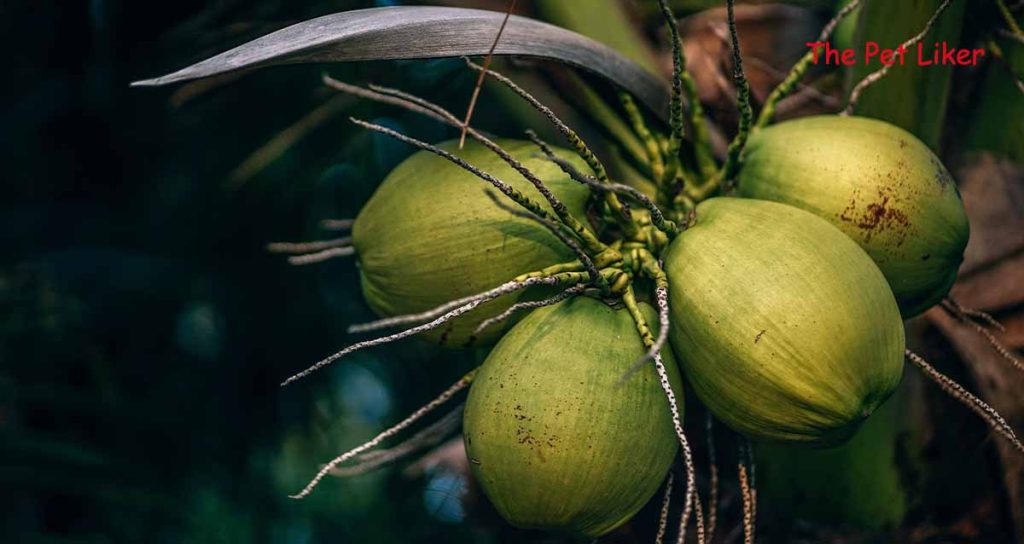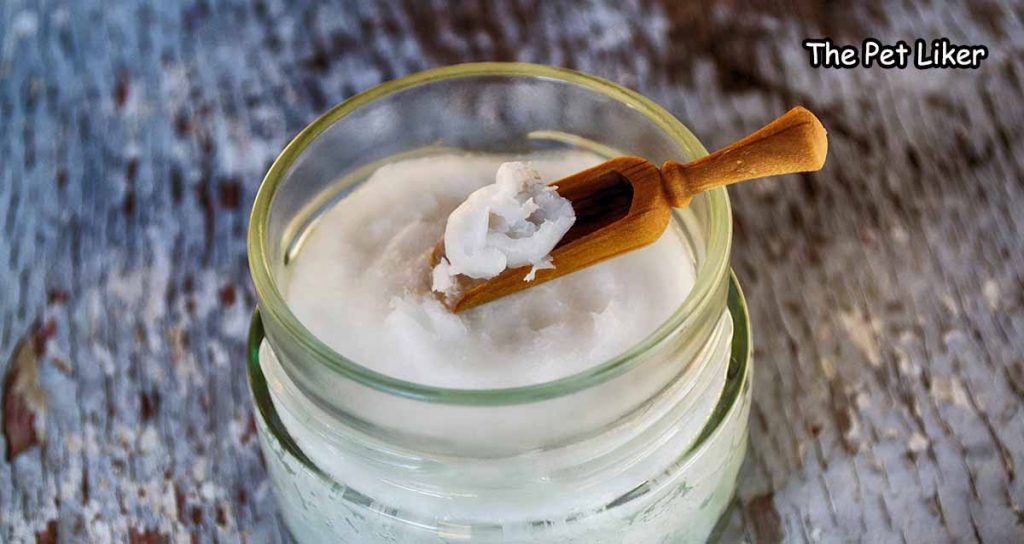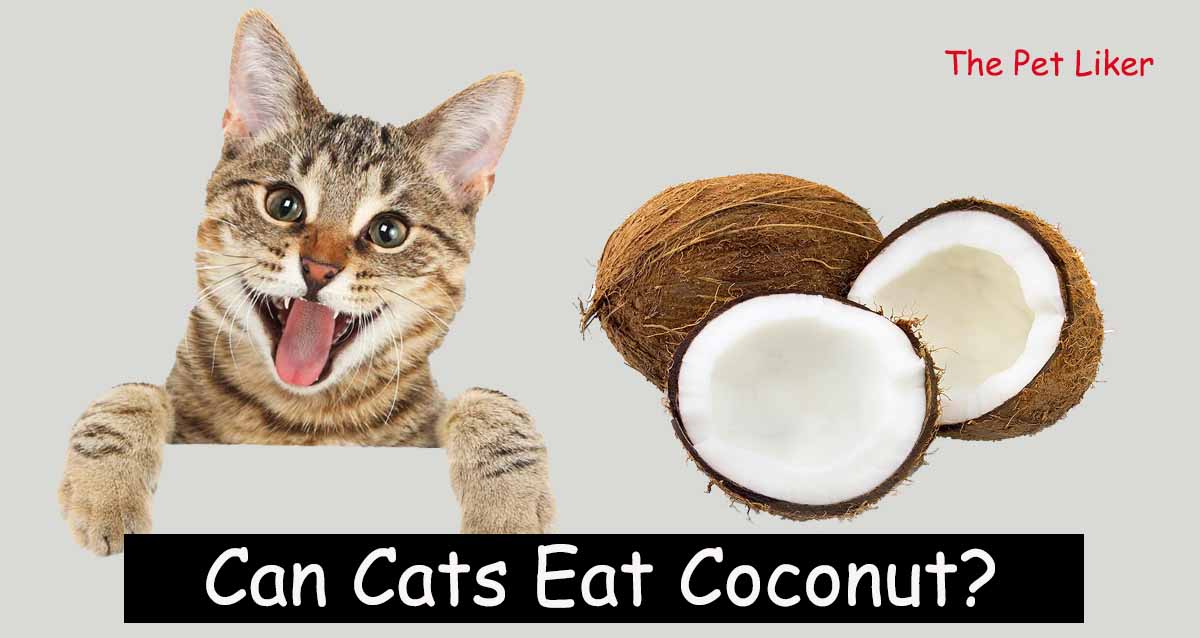Coconut is a popular food item that has many health benefits for humans, but what about our feline friends?
Can cats eat coconut and is it safe for them to consume?
In this article, I will provide some information about cats and coconuts. Let’s start!!
Can Cats Eat Coconut?
The short answer is no, cats should not eat coconut. Coconut meat, milk, and oil contain oils that can cause digestive upset in cats, leading to symptoms such as vomiting and diarrhea.
Coconut is not a natural part of a cat’s diet and does not provide the necessary nutrients that cats need to maintain their health.
While some cats may show no adverse effects from eating small amounts of coconut, it is generally not recommended to feed it to your feline.
If you want to provide your cat with a treat, there are many safe and healthy options available, such as cat-friendly fruits and vegetables like berries or steamed peas.

Coconut Meat:
Coconut meat is the white flesh that is found inside the shell of a coconut. Although coconut meat is a popular food item, it is not recommended to feed it to cats due to its high-fat content.
Cats are obligate carnivores and their digestive system is not designed to process high-fat foods like coconut meat, which can lead to digestive upset and other health problems.
Coconut Milk:
Coconut milk is made by grinding the white flesh of the coconut and mixing it with water. Similar to coconut meat, coconut milk contains high levels of oils that can be difficult for cats to digest and can lead to digestive issues.
Many brands of coconut milk contain added ingredients such as sugar or flavorings that are not suitable for cats.
Coconut Oil:
Coconut oil is derived from coconut meat and is a popular food supplement for humans due to its potential health benefits.
It is not recommended to give coconut oil to cats due to its high-fat content. Ingesting too much coconut oil can lead to pancreatitis, a serious condition that affects the pancreas.
While some cat owners may think that adding a small amount of coconut oil to their cat’s food as a supplement may be beneficial, it is important to consult with a veterinarian before making any dietary changes.
Is coconut oil safe for cats?
Coconut oil is technically safe for cats to consume, but it is not recommended as a regular part of their diet.
Coconut oil is high in saturated fat, which can be difficult for cats to digest and may lead to digestive upset, vomiting, and diarrhea.
Ingesting large amounts of coconut oil can lead to the development of pancreatitis, a serious condition that affects the pancreas.
Can I feed my cat coconut ice cream?
No, it is not safe to feed cats coconut ice cream. Coconut ice cream is a frozen dessert that is made with coconut milk and other ingredients such as sugar, flavorings, and other dairy products.
These ingredients can be harmful to cats and can cause digestive upset, vomiting, and diarrhea.
Cats are obligate carnivores and their digestive systems are not designed to process dairy products, which can lead to lactose intolerance and other health problems.

Risks ❌
There are risks associated with feeding coconut to cats. Coconut, in any form (meat, milk, oil), is high in saturated fat which can be difficult for cats to digest and can lead to digestive upset, such as vomiting and diarrhea.
Ingesting large amounts of coconut can also cause the development of pancreatitis, a serious condition that affects the pancreas and can cause abdominal pain, vomiting, loss of appetite, and dehydration.
In severe cases, pancreatitis can be life-threatening. Feeding coconut to cats can interfere with their ability to absorb essential fatty acids and vitamins, which are important for maintaining overall health and wellness.
Cats are obligate carnivores, and their digestive system is not designed to process high-fat foods like coconut.
It is best to stick to a balanced, nutritionally complete diet that is specifically designed for cats and to avoid giving your cat any human foods that are not specifically designed for their consumption.
Wrapping Up
Hope this article helps you to get a clear concept of your question “Can Cats Eat Coconut?”
It is best to avoid giving coconut to cats as a regular part of their diet. Coconut, in any form (meat, milk, oil), is high in saturated fat and can be difficult for cats to digest, leading to digestive upset and the development of pancreatitis.
It is important to provide cats with a balanced, nutritionally complete diet that is specifically designed for their needs. Remember that treats should only make up a small portion of a cat’s diet and should never replace their regular meals.
By providing your cat with the proper nutrition, you can help them maintain their health and wellness for years to come.
Thank you for reading! Always stay with The pet liker!! Have a nice day!!


Thank you for another wonderful article. Where else could anyone get that kind of info in such an ideal way of writing? I’ve a presentation next week, and I am on the look for such information.
This is a topic close to my heart cheers, where are your contact details though?